Performance results
We recently tested a Western Digital dual-drive Thunderbolt enclosure and compared its performance against a Thunderbolt-connected Samsung 840 Pro SSD and a Seagate 2TB (3.5in) drive also hooked up the same way. We've included their results in the upcoming graphs. The Buffalo MTPS was tested with both Thunderbolt and USB 3.0, connected to a host PC running Windows 7. To be clear, all drives bar the MiniStation USB 3.0 were connected via Thunderbolt.
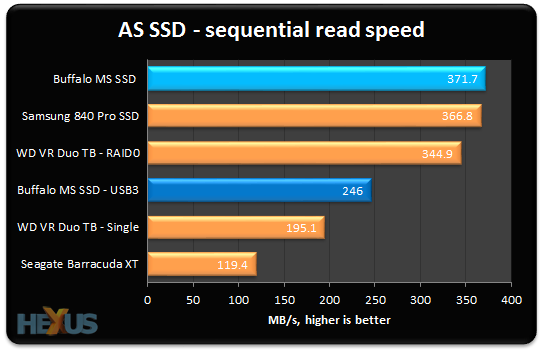
Set the MiniStation off in a straight-line sequential-read race and the Crucial m4 SSD is wonderfully fast via Thunderbolt, beating the USB 3.0 scores by a healthy 125MB/s. You can see why Buffalo chose a SATA 6Gbps-supporting bridge chip; the drive is capable of breaching the circa-300MB/s limit imposed by SATA 3Gbps.
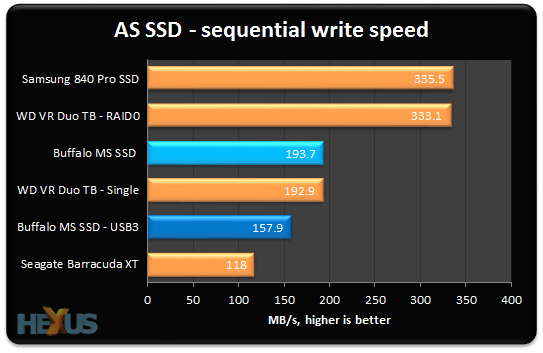
Write speeds aren't as impressive, as we alluded to earlier, but Thunderbolt remains faster than USB 3.0.
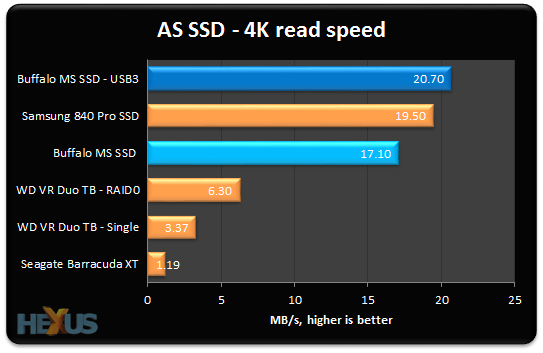
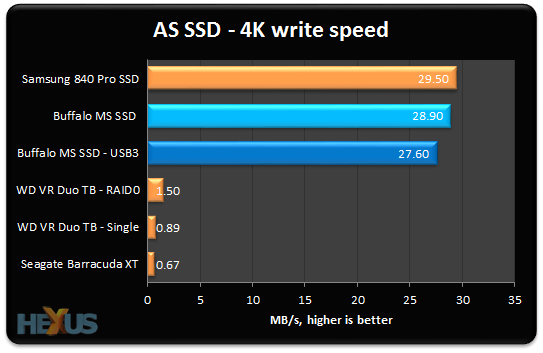
SSDs always look good in the 4K tests. Interestingly, USB 3.0 is a little quicker.
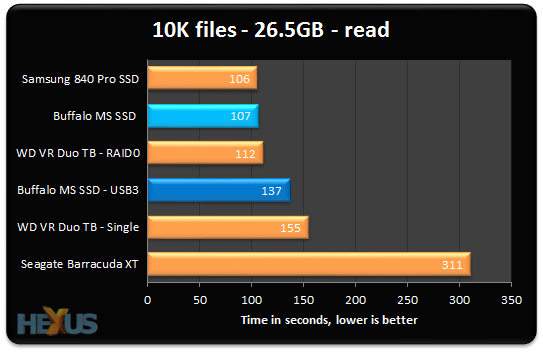
In the final test we move a Steam folder to-and-fro the host PC containing a Samsung 830 SSD. 26.5GB in size and containing 10,008 files, the transfer is a good proxy for the kind of data movements we expect users of this kind of storage to engage in.
Pulling the Steam folder off the portable-storage drive and writing it back onto the Samsung 830 Pro shows the MiniStation Portable SSD (Thunderbolt) in a good light. It averages almost 250MB/s, while the same drive with USB 3.0 is just shy of 200MB/s.
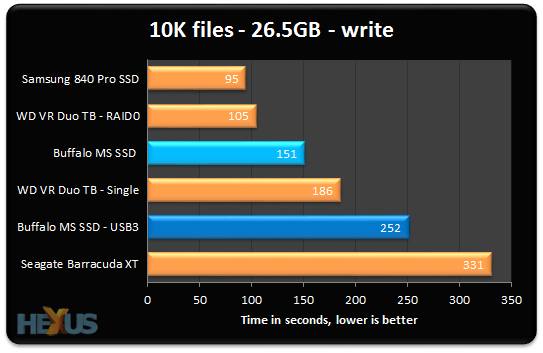
Writing onto the MiniStation is slower, due to the weakness of the Crucial m4 SSD's architecture. Thunderbolt is considerably quicker than USB 3.0, averaging 175MB/s compared to just 105MB/s, but both sets of numbers are thrashed by a Samsung 840 Pro inside a Thunderbolt caddy.









